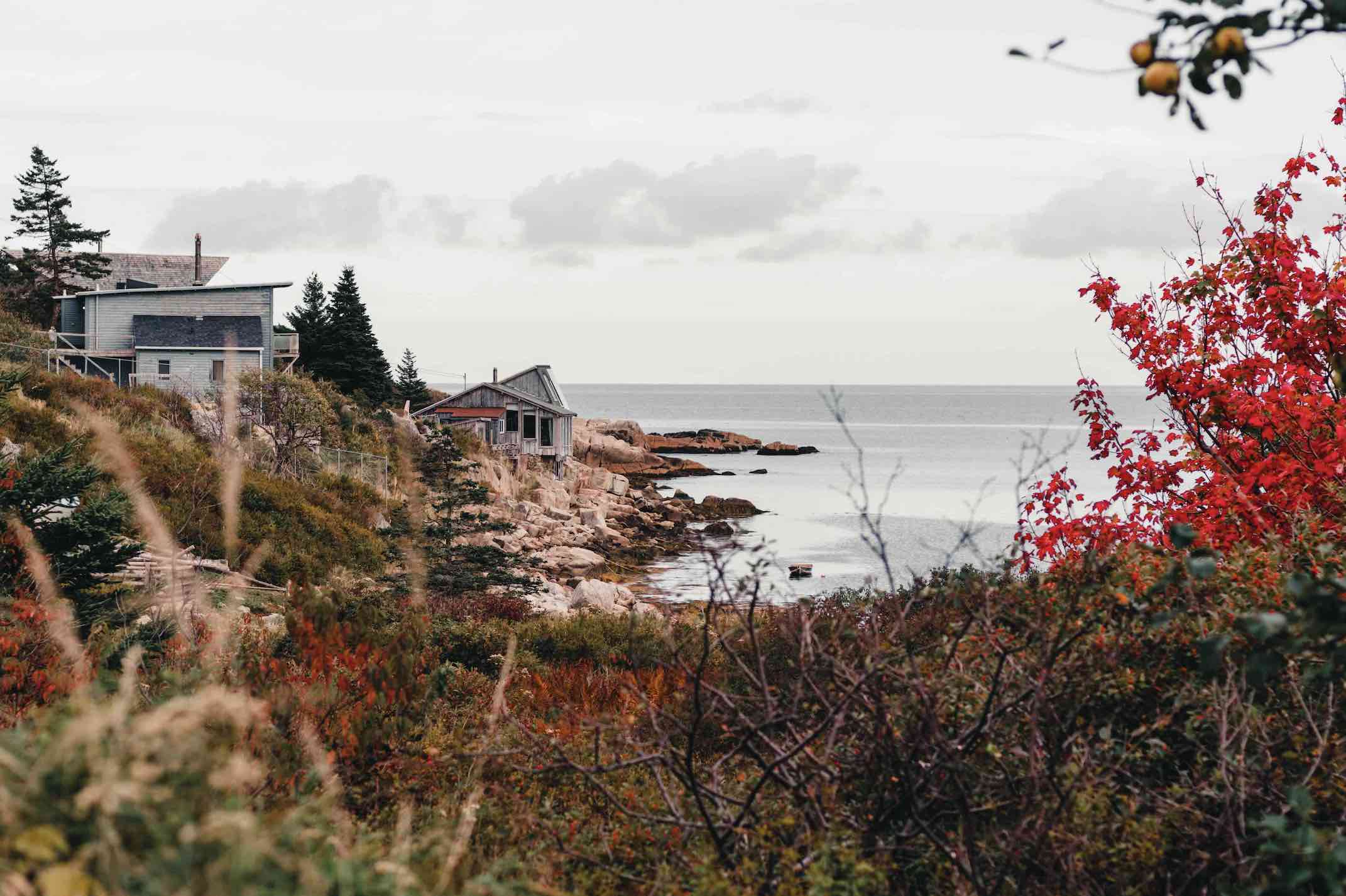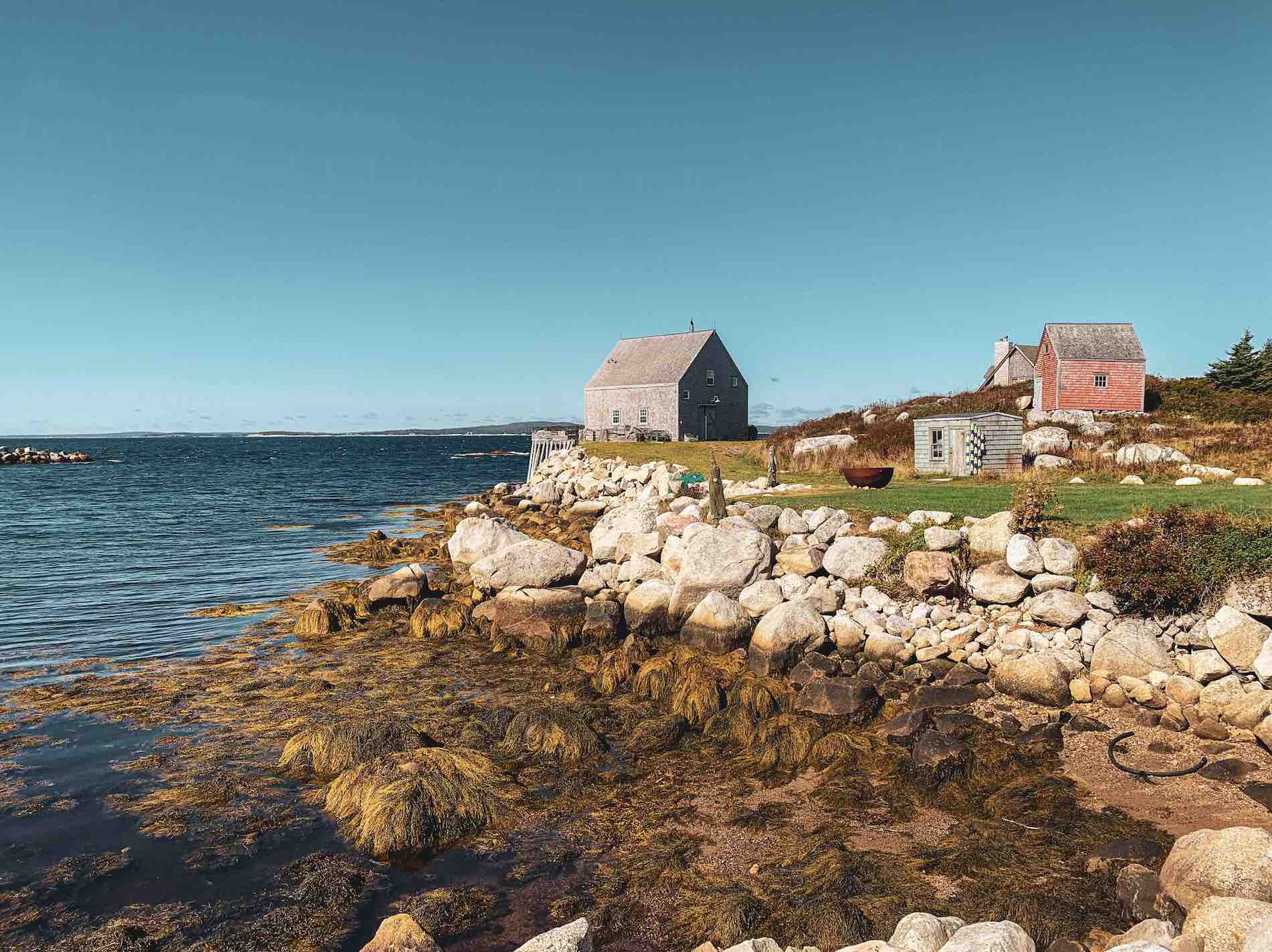Photo: Tyler Farmer / Unsplash
Full-time East Coast resident and Realtor Vince Grittani gives the lowdown on what you need to know about buying real estate in Nova Scotia
Nova Scotia has always been a premiere location for summer real estate. However, over the past few years it has become a prime destination for those wishing to escape and permanently relocate on Canada’s famed East Coast.
As interest in real estate in Nova Scotia has increased, there has been a surge of property sales, with purchases being made mainly by those from “away”.
Here are 10 of the most common questions asked by potential buyers of Nova Scotia real estate.
What You’re Bound to Ask About Buying Real Estate in Nova Scotia
“Can you buy a ‘cheap’ Nova Scotia cottage property on the water?”
The word “cheap” is up for interpretation when it comes to purchasing real estate in Nova Scotia. At the beginning of the recent boom, Nova Scotia real estate was inexpensive compared to the same type located in a hot market like southern Ontario.
It used to be that a when a waterfront property was listed in Nova Scotia it took months, sometimes years, to sell. But as waterfront properties in Ontario’s cottage country rose beyond the average purchaser’s reach, buyers discovered they could get the same property in Nova Scotia for a fraction of the cost.

Like Ontario, demand overtook supply and cottages on the Atlantic Ocean or the famous Bras d’Or Lakes started to rapidly increase. These days if you do manage to come across one of those rare “cheap” waterfront properties in Nova Scotia for $120,000, it is certain that you are getting what you paid for and can expect to spend money fixing it up, even making it inhabitable.
“What choices are there other than living by water?”
Often real estate buyers from outside the province think the only choice of a home in Nova Scotia is a wooden shingle cladded home by the sea. Although this is a romantic version of one type of available real estate in Nova Scotia, it’s far from the only one.
First of all, living by the sea isn’t the only option. The Annapolis Valley, Nova Scotia’s bread basket, resembles mid-west North America and is protected from the harsher, moist elements of the sea, and is dry enough to support vineyards in parts.

For the more adventurous, consider a home tucked inside two rolling peaks of the Cape Breton Highlands. As they say in Nova Scotia, “If you don’t like the climate just wait five minutes!” Or, travel five kilometres inland.
“What’s the Internet like?”
If the Covid pandemic taught us anything, it’s that you don’t have to sit in an office to make a living. As working from home has become more popular, affording a home in which to work has become less obtainable in certain parts of the country.
For those whose job doesn’t demand sitting in traffic commuting to an office, purchasing real estate in Nova Scotia has become an affordable option. While the sudden rush to move to Nova Scotia caught a few suppliers off guard, Internet providers were well ahead of the game and most urban centres enjoy a choice of fibre optics or cable.
However, as many of those arriving from away come here to live in a rural setting, Internet providers are working at top speed to lay cable and build additional cell towers. In regions where the topography may cause issues, like the peaks and valleys of the Cape Breton Highlands near the Cabot Trail, often the best choice is satellite.
In fact, satellite Internet has become so popular that there is often a waiting list. So if you are planning to move to rural Nova Scotia where the Internet is sketchy, you may want to add your name to the list way in advance, before you move.
“Will I face competition when buying real estate in Nova Scotia?”
In markets like Vancouver and Toronto, demand increased way above supply very quickly, allowing sellers the luxury of receiving multiple bids. In Nova Scotia, up to recently, competitive bidding wasn’t all that prevalent.
Halifax has always been the hottest Nova Scotian real estate market, and its population has been steadily increasing while supply has been quickly decreasing. In fact, for the first time in its history the population of Nova Scotia has reached one million. New builds haven’t kept up to demand and Halifax is experiencing “urban sprawl”. Consequently, multiple bidding is seen more often with some properties receiving over 50 bids and selling for hundreds of thousands of dollars over asking.
For those still looking for an urban environment and for whom Halifax real estate is out of the question, then perhaps consider Sydney, Nova Scotia’s second largest city. Once a coal and steel town, Sydney is experiencing a renaissance. It is the home of the expanding Cape Breton Regional Hospital, the University of Cape Breton, and the Nova Scotia Community College with its new modern downtown campus.
It is still affordable and attracts a younger crowd. If you are an outdoor enthusiast, the city is close to skiing, kayaking, and, of course, hiking and camping in the nearby world-famous Cabot Trail and the Cape Breton Highlands National Park.
“What’s the medical care like?”
This is probably as popular of a question as the above Internet query. And the answer is similar. It’s growing. With many mature, retired folk moving to the province, being 20 minutes from a hospital is a concern.
There are 43 hospitals spread throughout the province, ranging from larger medical centres in bigger cities to mid-size hospitals and clinics. The provincial government is sponsoring a very active campaign recruiting medical professionals looking for the kind of lifestyle only Canada’s ‘Ocean Playground’ can offer.
“Will buying Nova Scotia Real Estate hold its value?”
While there’s no definitive answer to this question, there are, however, factors that can support a positive response. Say, for instance, that real estate elsewhere in the country decreases in value, which is unlikely. If so, Nova Scotia real estate would likely remain affordable in comparison to the western part of the country, so demand will remain high.
Immigration to Nova Scotia, from both other provinces and other countries, continues to rise. Industry in Nova Scotia is evolving. From an economy that for years depended on only natural resources, the province’s medical development and tech sectors are growing.
As was particularly demonstrated during the pandemic, Nova Scotia is quickly becoming a desired filming destination with a growing local talent pool, both in front of and behind the camera. And with amazing attractions like Bras d’Or Lakes, Annapolis Valley, the South Shore, and Cabot Trail, Nova Scotia continues to rank high on the favourite travel destination list of many world travellers.
“And the education system, is it up to par with the rest of the country?”
For the answer to this question, one needs to look not only beyond the borders of Nova Scotia, but of Canada. Canadian teachers who have had the opportunity to teach abroad, especially in exclusive private schools, will know that those who are trained and hold a Nova Scotia or Ontario teaching certificate are often favoured.
With its strong Acadian heritage, French emersion schools and classes are available. And when it comes to world renown universities there’s no shortage, with Dalhousie in Halifax and St Francis Xavier in Antigonish being two of the most popular.
“Are the winters as bad as they say?”
The media loves showing pictures of people digging themselves through a tunnel of snow out of their front door. Not to say this doesn’t happen, but usually that’s in provinces north of Nova Scotia, like New Brunswick, Quebec, and Newfoundland.
Unfortunately, climate change over the past decade is evident Nova Scotia. Benefiting from the Gulf Stream bringing warmer waters from the south, winters in many parts of the province are now nowhere near as extreme as they use to be. In fact, over the past few years parts, of southern and central Ontario have experienced more extreme winters than Nova Scotia.
Along the south shore, for sure, winters have been more moderate. Obviously, as you travel higher up the Cabot Trail there is more snow and winter activities like skiing, snowshoeing, ice fishing and snowmobiling are popular.
“Is buying a vacant lot and building a less expensive way to go?”
Simply put, not always. In the past few years the price of lumber has skyrocketed. The overall cost to build has, too. Often, it is better and more efficient buying real estate in Nova Scotia that comes with an existing structure and renovate or update.
Unfortunately, a shortage of labour curtails the building process. One solution is to purchase a modular home built in Nova Scotia and have it transferred to your vacant lot. Modular home designs have come a long way. Constructed in temperature-controlled factories, costs are maintained by salaried trades, the weather is no longer a factor, and material waste is reduced, ensuring your home comes in on time and on budget.
Often, once delivered, a multi levelled home can be assembled on a foundation within a week.
“What sacrifices am I making by moving to Nova Scotia?”
For the most part you aren’t sacrificing but rather making a life adjustment. With online shopping and one-to-two-day deliveries you can still enjoy all the conveniences of a digital lifestyle.
And as previously mentioned, high-speed Internet and new cell towers have increased coverage throughout Nova Scotia so you don’t have to sacrifice zoom calls with clients or binging on this year’s season of your favourite streaming series. All the popular box stores are present in the larger cities and only a few hours away from anywhere in the province.

Cultural activities like theatre and music may not be on the scale of Toronto, Montreal, or Vancouver, but Nova Scotia boasts fine professional theatre companies and venues that are equal to anywhere else in Canada. You may not be able to enjoy a whole season of ballet or opera, but you can enjoy a continuous feed of authentic Highland dance, down east humour, and Acadian ballads throughout the year.
And when it comes to great cuisine, it’s literally at your doorstep. Well, at least your shoreline. You will have to travel to see your favourite NHL team in person, though, which in Nova Scotia appears to be split between the Boston Bruins and Montreal Canadiens. Sorry, Leaf fans.
If there are things you may have to sacrifice, it’s the stress, higher real estate prices, the crowds and extreme traffic jams. These tend to be few and far between here in Nova Scotia.
_________________
LuxuryNovaScotia’s Lifestyle Editor Vince Grittani is a realtor, TV host, and screenwriter who recently moved from Ontario to his oceanside home on Isle Madame, Cape Breton. Check out his website at www.escapetoNovaScotia.com.


Meet England’s V8 Beauty: The Spectacular Eadon Green Zeclat
Contributor TMA Howe recently visited Yorkshire, England, for a close-up look at the luxurious Eadon Green Zeclat

Big & Bougie: The 2024 BMW X7 vs. 2024 Mercedes-Benz GLS
Pitting the 2024 BMW X7 M60i against the 2024 Mercedes-Benz GLS 580.Both have heaps of power through V8 engines and are big and bougie

Spirited Adventures at the Best Halifax Museums and Attractions
From spirit tours to tracing family roots, Contributor James Ross explores some of the best attractions and museums in Halifax

Old-fashioned Cutting Gardens Are Making a Comeback
Green-thumbed gardening enthusiast Andrew Wagner-Chazalon shares these tips for growing the perfect cutting garden

The Ultimate Bespoke Benz: Mercedes-AMG G 63 – G Wagen
Big, boxy, brawny and bespoke: there’s nothing quite like the “G-Wagen” Mercedes-AMG G 63 with its handcrafted AMG engine


